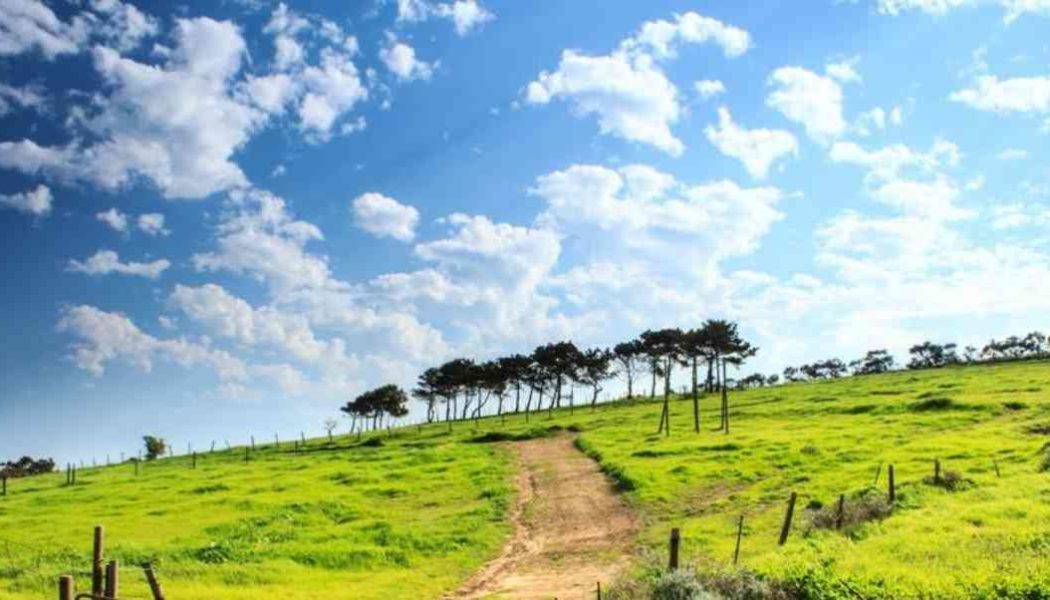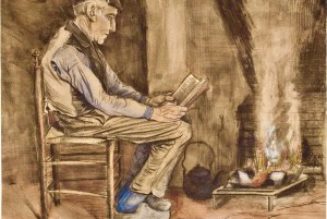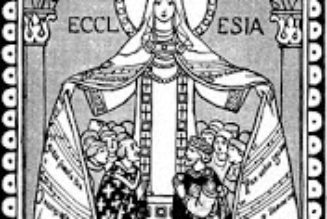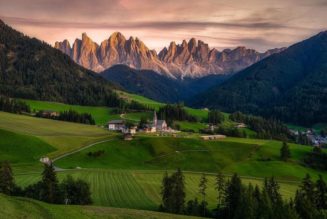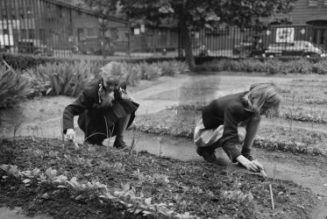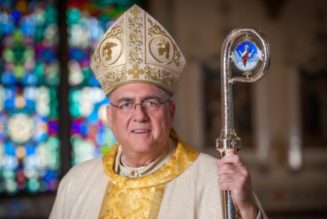
Jesus is “re-Edenizing” the world and he wants us to see how we can help transform the world back into the Paradise God originally created it to be on the 11th Sunday of Ordinary Time, Year B.
What do we know about the Paradise of the Garden of Eden?
- Paradise was the place where Adam and Eve were made for each other — and Jesus has said that he is the bridegroom for the Church, his bride.
- Paradise was a place where God and man lived together as friends — and Jesus has said that he has come to restore the friendship of God and man.
- Paradise was also a principality — with real rules that Jesus has said must be followed “on earth as they are in heaven,” and Jesus came to renew our ability to live his way.
We think of all of those things when we think of the Garden of Eden. But first and foremost, of course, we think of the Garden of Eden as a garden. And not just a garden of plenty, but a garden Adam tills and keeps.
What was true of Adam and Eve is true for us now. We work his garden; God makes it grow.
This Sunday, Jesus describes his kingdom in the Gospel this way: “This is how it is with the kingdom of God; it is as if a man were to scatter seed on the land and would sleep and rise night and day and through it all the seed would sprout and grow, he knows not how.”
As it is in the natural world, so is it in the supernatural world: God provides subtle but unstoppable growth for those who do his wil. He has gone so far as to make us co-workers in his great project.
St. Paul once explained how this works. Paul had started the church in Corinth and it grew under the preaching of another Christian, Apollos. He described the principle that always applies in these cases: “I planted, Apollos watered, but God gave the growth.”
The church here in Atchison, Kansas, was begun by monks; my wife, my neighbors, and I work to keep it going — but God provides the growth. But on a more global scale, God began the Church, he assigns us to tend it, and he will make it grow.
But what Jesus says next is fascinating: “Of its own accord the land yields fruit, first the blade, then the ear, then the full grain in the ear. And when the grain is ripe, he wields the sickle at once, for the harvest has come.”
He is describing how painstakingly slow the growth of his kingdom, the Church, can be — and you can take him to be describing how the transformation of the world, its “re-Edenization,” takes a long time too.
How long? Anyone who has done a Jesse Tree project in Advent knows the answer. Adam tended the Garden of Eden. Noah, cared for a mini-Eden on the ark, until the olive plant said it was safe. Abraham found a sacrifice tangled in thorns. Then came Moses who spoke to God in a mysterious fiery bush and received manna from heaven. It took a very long time for the “shoot from the stump of Jesse” to establish the Kingdom of David forever.
You see the same “nature logic” this Sunday in Jesus’s mustard seed and in the Psalm.
In the Gospel, Jesus says of the mustard seed, “Once it is sown, it springs up and becomes the largest of plants and puts forth branches, so that the birds of the sky can dwell in its shade.”
The mustard tree is “the Church of Christ now being established over the whole earth,” said St. Clement of Alexandria, “So that the birds of the air — that is holy angels and lofty souls — dwell in its branches.”
The trick to flourishing is staying close to the Church, says the Psalm. “The just one shall flourish like the palm tree, like a cedar of Lebanon shall he grow. They that are planted in the house of the Lord shall flourish in the courts of our God.”
It’s a great metaphor. All the power is God’s, and if we take our plant away from him, it’s like shading a plant and denying it water: It will die, not because God is mean but because God is the source of abundant life. If we cooperate with God’s law, his logos, the logic of his universe, things will go well for us.
But of course it’s just a metaphor. We aren’t really trees, and this world is not our final home.
Sunday’s First Reading breaks the metaphor open to show how his “trees” are exalted on high by God himself.
“Thus says the Lord God: I, too, will take from the crest of the cedar, from its topmost branches tear off a tender shoot, and plant it on a high and lofty mountain,” says the reading from the Prophet Ezekiel.
Then Ezekiel writes something that should remind us of Jesus’s last week on earth: “I, the LORD, bring low the high tree, lift high the lowly tree, wither up the green tree, and make the withered tree bloom.”
We all remember how, the night before he died, Jesus compares himself to a vine, with us as the branches. But the week before he died, we saw two other plant metaphors: The day after his triumphal entry into Jerusalem, Jesus was hungry and “punished” a fig tree for having no figs. He made it wither and die.
The lesson of the fig tree is that Jesus comes to our tree expecting it to have grown, expecting to see fruits of our faith. The fact that in the week before Passover it was “not the season for figs” is important. The lesson is not about trees, but is for human beings to learn from. Jesus wants us to produce works of prayer and repentance at all times, in season and out.
But in another plant metaphor, he shows how he can make dead things bloom. He tells Greeks visiting Jerusalem that “unless a grain of wheat falls to the earth and dies, it remains alone. But if it dies it bears much fruit.” When we do God’s will but see no growth, we can remember that God can bring life from our sacrifice. He will “make the withered tree bloom.”
Ultimately, Jesus Christ is the final and eternal king and ruler over the world, the culmination of all the lesser “kings” who prepared for him. He tends his garden sometimes by planting and sometimes by reaping; sometimes by pruning and sometimes by letting it alone.
Faith means that whatever he is up to, we know that God is up to something good.
Our job is simply to submit to the will of the king, as St. Paul in his Second Letter to the Corinthians points out. “We walk by faith, not by sight,” he says. And even though “we would rather leave the body and go home to the Lord,” we nonetheless “aspire to please him.”
Eventually, Paul says, “all must appear before the judgment seat of Christ so that each may receive recompense, according to what he did in the body, whether good or evil.”
Mass is a graced time where what Jesus is doing is clear. He prunes us with his challenges, he enlightens us with his word, and he nourishes us with his body and blood, soul and divinity.
We receive him under the appearances of bread and wine to remember that he is the grain of wheat that died in order to bear much fruit in us, and he is the vine whose life runs in our veins when we unite with him.
And with the seeds sown in us in communion, he expects us to bring an abundant harvest into the world.
Image: Freerange Stock.
